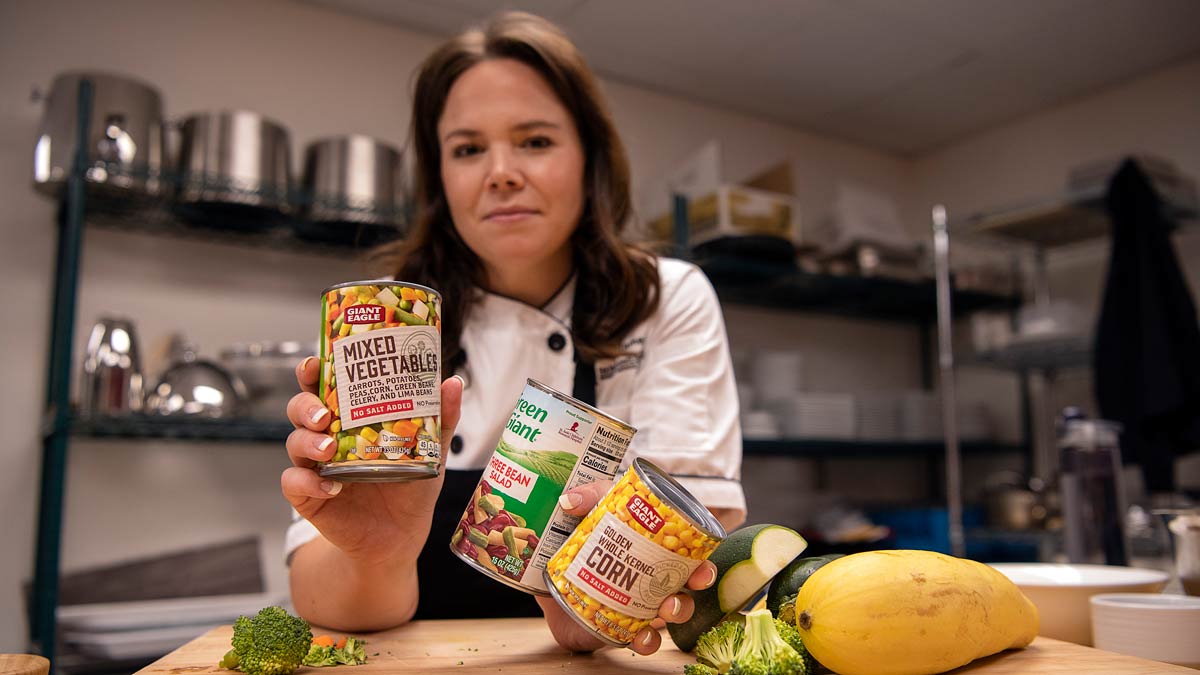How to decode your food cravings

Food cravings are very normal, and we all have them.
A food craving can be described as an intense desire or longing for a specific food or type of food. Cravings are often separate from physical hunger. Cravings can be emotional or psychological in nature.
We’re all wired differently and, because of that, some of us crave sweets and some of us crave salty or savory items. Men are more likely to crave salty or savory items and women are more likely to crave sweets.
A lot of us use excuses to eat foods that we crave. We say things like, “Oh I deserve this,” or “I had a bad day.” Let’s be honest, you don’t need to reward yourself for going to work today, especially if you do that every day.
The key is to learn how to manage cravings and know that you don’t have to give into them every time. It’s OK to hold off and learn that you’ll survive even if you don’t give in each time.
Why do we crave certain foods?
We may crave foods for a number of reasons. Research has shown that cravings can activate the reward part of our brain that triggers a “feel good” sensation and reinforces the food as reward or coping mechanism. This is likely why we tend to crave certain foods in times of reward, stress, sadness, coping, etc.
Cravings can also arise as a conditioned response. For example, if we learned to comfort ourselves with food growing up, then we’re more likely to continually turn to food for comfort as adults.
Comforting with food can mean lots of things, including initiating down time after a long day, decompressing after a stressful event or workday, or coping with a difficult situation.
How can you manage your food cravings?
Be mindful of how much exposure to food you have, such as watching the Food Network, reading food blogs or magazines, or hanging out at bakeries or restaurants.
Research has shown that sight and smell alone can increase our food cravings. So aim to limit your exposure to tempting foods.
If you know there are cookies in the break room, don’t go to the break room. Don’t keep a bowl of candy on your desk, as you’re much more likely to snack from it, even if you aren’t physically hungry.
Try using non-food ways to reward yourself or provide comfort. Try things such as taking a walk, reading a book if you’re stressed out, taking a time out when you come home from work instead of snacking. There’re a number of ways to better meet needs than by using foods that we crave.
How can you ‘retrain’ your taste buds to decrease your food cravings?
One important step is to slowly and gradually reduce how much processed food is in your diet. By choosing more foods in their whole or natural state, you’re decreasing extra sugar, fat, salt, or additives in your food.
Choosing real foods over processed foods will not only improve health, but also decrease cravings for junk food. Real foods contain less added sugar, salt, fat, etc., so overtime your tolerance and desire for those foods will lessen.
Another important step is to eat balanced meals on a consistent basis. By this, I mean to establish a regular pattern of eating. For most people, that’s three meals and a snack. For others, it could be two meals and a snack.
Figure out how your body feels best and stick to that pattern on a consistent basis. This consistent eating pattern helps to stave off physical hunger, which is important because physical hunger is more likely to increase cravings. And extreme physical hunger is more likely to lead you to give into your food cravings.
Another important aspect of eating regularly is to have a balance of carbohydrate, fat and protein at each meal. Each of these macronutrients activate different hormones that signal satiety. Without one or all of these macronutrients present in a meal, we can be left feeling unsatisfied, and more likely to crave foods after eating in order to meet that satisfaction factor.
How long will this take?
There isn’t a set amount of time to help reduce cravings. However, it’s common knowledge that it can take 4-6 weeks to establish a new habit. So be patient with yourself and keep focused on your goal.
If you’re someone who can’t stop eating once you start with a favorite food, then it’s probably best to keep those foods out of the house. Or only buy a single serving of it.
However, if you’re the type of person who can eat a small amount of the food you crave and be satisfied, then do that. The key is to know yourself.
Erin Holley is a registered dietitian at The Ohio State University Wexner Medical Center.




